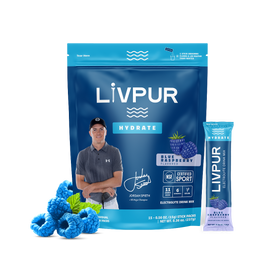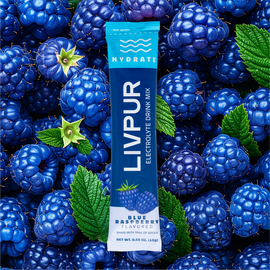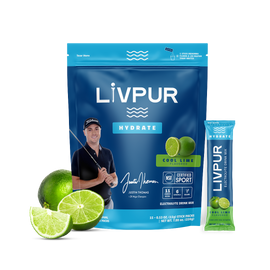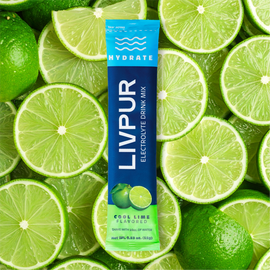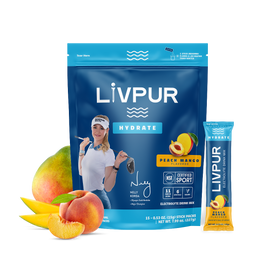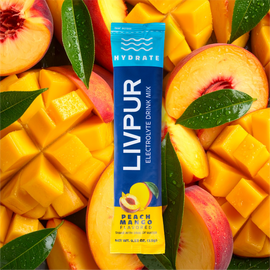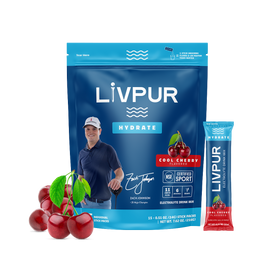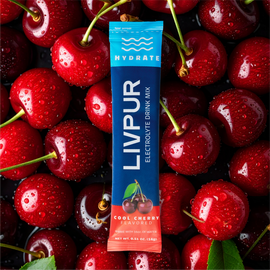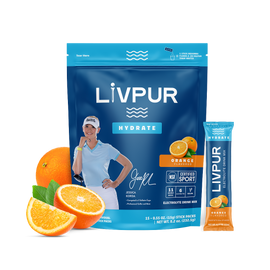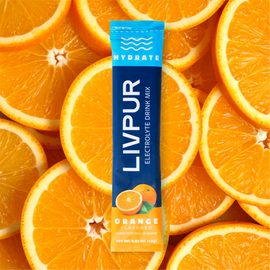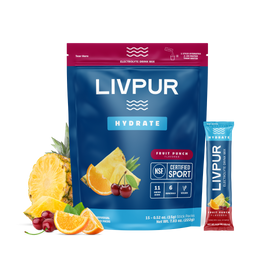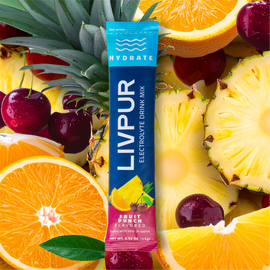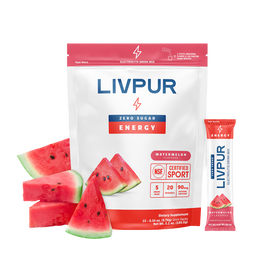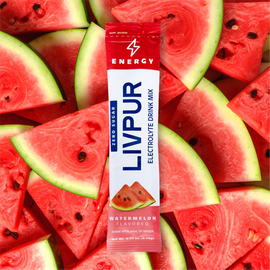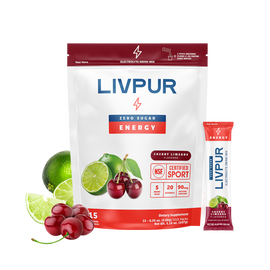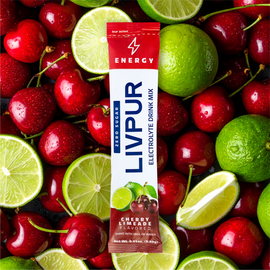November 22, 2023 • By Laura Onie • Blog
Electrolytes for Endurance & Performance: What the Research Says

Heat increases fluid loss, creating the potential for dehydration. The symptoms of dehydration, from fatigue to muscle cramps, impact performance and endurance.
Even if we’re not exercising in hot temps, intense activity creates the heat that leads to fluid loss. So, it stands to reason that electrolytes are a logical solution to prevent athletic impairment from dehydration, even in mild cases.
However, a few reviews challenge this. They state that even if you lose 4% of your body weight in fluid during exercise, you’re “very unlikely” to experience decreases in endurance performance.
Let’s take a closer look and see which line of thinking holds more water.
Does hydration really impact endurance and performance?
Viewpoints critical of hydration’s impact on performance and endurance do not consider the length of some events, the demands placed on elite athletes, and environmental factors such as heat.
The American College of Sports Medicine (ACSM) has not altered its position on hydration. It states that athletes should, “prevent excessive (>2% body weight loss from water deficit) dehydration and excessive changes in electrolyte balance to avert compromised performance.”
For example, an athlete weighing 175 pounds would start seeing performance and endurance decrease after losing 3.5 pounds of water weight during exercise. The average marathon runner easily loses double that during a race.
ACSM also suggests that hydration drinks containing carbs and electrolytes can be more beneficial than plain water during exercise.
You could also ask the athletes themselves. One study did just that, surveying hundreds of NCAA track and field throwers. Out of 295 participants, 287 reported that in their experience, dehydration can decrease performance.
Athletes were also almost universally aware that they needed to drink during practice and that fluids should always be available during practice and competition. Additionally, two-thirds of athletes surveyed stated their belief that they should replenish with drinks containing electrolytes.

Why You Should Use Electrolytes for Endurance & Performance
- For blood volume. Fluid and sodium loss reduces the amount of blood in your body, and this means less blood is going to your muscles, affecting performance.
- To prevent cramping. The most popular electrolytes, including sodium and potassium, facilitate muscle contraction.
- To fight off fatigue. Sweat and even labored breathing depletes electrolytes, creating an imbalance. One of the first signs is fatigue. Replace electrolytes right away to maintain endurance.
- To moderate internal temperature. With less blood circulating to all of our organs and muscles, our internal temperature doesn’t regulate itself as well, making us feel hotter faster.
- For cardiovascular efficiency. Let’s not forget the body’s most critically important muscle. Upon losing fluid and electrolytes, the heart has to work harder, which has a negative effect on both performance and endurance.
The biggest barrier to optimal hydration? Lack of knowledge.
Some studies, including the one on marathon runners we referenced earlier, make note of how many athletes don’t take hydration seriously enough. With performance and endurance hanging in the balance, that needs to change.
A survey of over 400 runners found that approximately 88% of them did not know their sweat rate. To calculate this, subtract your post-exercise weight from your pre-exercise weight. Then, add your fluid intake. Take that number and subtract the volume of urine and exercise time in hours.
That’s only a basic formula. It’s important that endurance athletes are also aware of how much sodium they lose when sweating. If battling dehydration has been an issue, sweat sodium concentration testing is necessary.
How to Prevent Hydration-Related Endurance & Performance Deficits
If the pressure’s on and you want to leave nothing to chance, here’s what experts recommend:
Arrive hydrated, every time.
To prevent any losses, endurance athletes need to start the session or competition hydrated. Pros also acknowledge that maintaining a healthy fluid balance every day is key to their success.
Athletes must be acclimatized to heat.
No one will know what it takes for them to stay hydrated if they cannot predict adverse impacts from the temperature. Everyone loses fluid at slightly different rates, depending on their size, level of fitness, exact environment, intensity of activity, and more.
Consistently exercising in the heat for 90 minutes over one to two weeks is sufficient to acclimate many, although experienced endurance athletes may require less.
Acknowledge thirst and quench it on the spot.
Some don’t want to take their eyes off the prize. But where performance is concerned, respond to thirst signals promptly by drinking fluids. If it is hotter than usual, even by a slight margin, increase fluid intake accordingly.
Know when to use hydration drinks.
Athletes performing in the heat may be advised to pre-load with a hydration drink containing electrolytes and carbohydrates. In addition to this, use hydration drinks when training and events meet or exceed one hour.
Hydrate: An NSF Certified for Sport Hydration Drink
Many athletes will think nothing of having an energy drink before they’re put to the test, but fluid loss may put a damper on their plans. Proper hydration plays a significant role in endurance and performance, especially when conditions are hot.
Research suggests that carbohydrates and electrolytes are a more efficient way to restore or maintain balance than water alone. If your training session, practice, race, or match lasts an hour, a hydration drink comes in clutch.
LivPur’s Hydrate contains five essential electrolytes, paired with a little bit of glucose to speed up absorption – it may even rehydrate you three times faster than water by itself. Add in cluster dextrin (an accessible yet sustained-release carb) and 11 amino acids, and you might just reach your peak.
Finally, it’s NSF Certified for Sport ®, ensuring purity, quality, safety, and accuracy in labeling. Athletes seeking supplements can depend on the only independent third-party certification program recognized by the United States Anti-Doping Agency (USADA), Major League Baseball, and the National Hockey League. It’s also recommended by the NFL, NBA, PGA, LPGA, CCES, CPSDA, iNADO, Ironman, and NASCAR.
